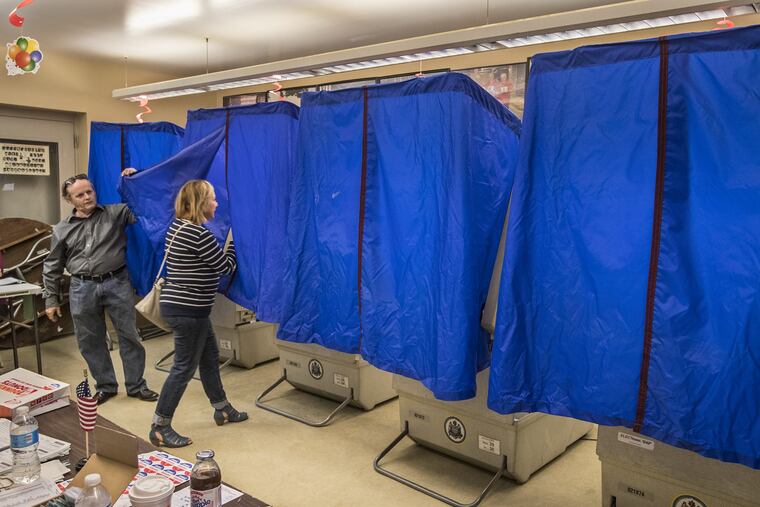The threat to our democracy? Our indifference to fixing our voting machines. | Editorial
President Trump's willful blindness to the Russian meddling means the U.S. remains vulnerable to interference in future elections. All the more reason why states, including Pennsylvania, must move to protect our voting system from cyberattcks.

Not that anyone living in the reality-based world needed more convincing, but the recent indictment of 12 Russian intelligence officials charged with interfering in the 2016 election, and President Trump's apparent alliance with Russian President Vladimir Putin in denying the hacks, underscores the seriousness of this attack on the United States' democracy.
Prior to the indictment, the Republican-led Senate Intelligence Committee said in May that the Russian government "conducted an unprecedented, coordinated cyber campaign against state election infrastructure."
Trump's willful blindness to the Russian cyberattacks means the U.S. remains vulnerable to interference in future elections. All the more reason why states, including Pennsylvania, must move to protect our voting system from such attacks.
Pennsylvania is particularly susceptible to attack. Most voting machines in the state – including in Philadelphia – are old and do not provide a paper record to safeguard against fraud. After Texas, Pennsylvania has the most registered voters using machines with no paper trail, according to Verified Voting, a nonpartisan group promoting trustworthy voting systems. (New Jersey and Delaware voting machines also lack paper records.)
A former National Security Agency engineer said Pennsylvania is a ripe target since it is a battleground state. "If I was a 400-pound hacker, I would target Pennsylvania," said Ben Johnson, chief security strategist at Carbon Black, a cybersecurity firm, referencing Trump's ridiculous 2016 comment that the hackers could be someone "sitting on their bed that weighs 400 pounds."
In April, Gov. Wolf told county officials to replace their electronic voting machines with devices that leave a verifiable paper trail by the end of 2019. But the lack of funding to cover the estimated $125 million cost remains a roadblock.
Congress appropriated $380 million in March to bolster election security nationwide. But Pennsylvania's share of the funding was only $13.5 million.
Homeland Security officials said Pennsylvania was one of 21 states targeted by Russian hackers before the 2016 election. Hackers succeeded in breaching the system in Illinois, but there was no evidence the vote tallies were altered.
Securing our voting system is not a partisan issue. Indeed, concerns about Pennsylvania's voting machines predate the Russian election interference.
In 2006, a coalition of concerned voters filed a lawsuit challenging the lack of a paper record. But nine years later, the Pennsylvania Supreme Court ruled in favor of the paperless voting machines, allowing the vulnerable devices to remain in use.
In 2006, a team of computer experts at the National Institute of Standards and Technology could not verify the accuracy of votes cast on paperless touch-screen machines.
In 2015, Mayor Michael Nutter allocated $22 million to replace the voting machines in Philadelphia. At the time, City Council President Darrell Clarke said he was "not feeling" the funding request.
At least one state has moved quickly to upgrade its outmoded voting machines. Last September, Virginia banned the use of the paperless voting machines and ordered ones that provide a paper record by this November. Pennsylvania and other states need to act with the same urgency.
The external threat from Russia shouldn't be diminished, but the biggest danger to our democracy is our own civic indifference to ensuring that voting systems are effective in making every vote count, and every election outcome valid.